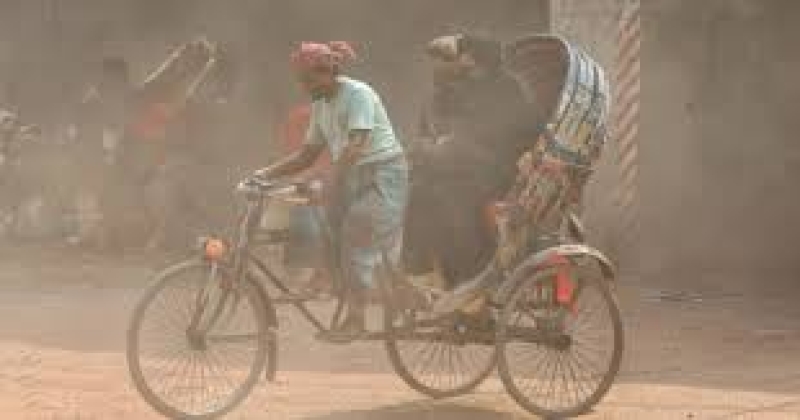- Japan Issues Tsunami Alert After Strong 7.6 Quake |
- Bangladesh Plans Record Flag-Parachute Display on Victory Day |
- UN Launches $33 Billion Appeal to Aid 135 Million People |
- CA urges united efforts to stop food contamination voicing concern |
- Tarique obliquely slams Jamaat for ‘propaganda’ against BNP echoing AL |
Dhaka’s air still remains unhealthy on Saturday

Dhaka has ranked fourth on the list of cities worldwide with the worst air quality with an AQI score of 172 at 8:55 am this morning.
Dhaka’s air was classified as 'unhealthy’, according to the air quality index.
Pakistan’s Lahore, India’s Delhi and Uzbekistan’s Tashkent occupied the first, second and third spots on the list, with AQI scores of 270, 236 and 182, respectively.
When the AQI value for particle pollution is between 50 and 100, air quality is considered ‘moderate’, between 101 and 150 is considered ‘unhealthy for sensitive groups’, between 151 and 200 is ‘unhealthy’, between 201 and 300 is said to be 'very unhealthy', while a reading of 301+ is considered 'hazardous', posing serious health risks to residents.
The AQI, an index for reporting daily air quality, informs people how clean or polluted the air of a certain city is and what associated health effects might be a concern for them.
The AQI in Bangladesh is based on five pollutants: particulate matter (PM10 and PM2.5), NO2, CO, SO2, and ozone.
Dhaka has long been grappling with air pollution issues. Its air quality usually turns unhealthy in winter and improves during the monsoon.
As per World Health Organization (WHO), air pollution kills an estimated seven million people worldwide every year, mainly due to increased mortality from stroke, heart disease, chronic obstructive pulmonary disease, lung cancer, and acute respiratory infections, reports UNB.

